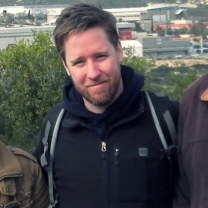 / The Semantics of Destruction
Subscribe
/ The Semantics of Destruction
Subscribe

“If the US or our allies are attacked, we will have no choice but to totally destroy North Korea,” said President Trump in his recent speech at the United Nations. In my world, that statement evoked intense opposition, but relatively little semantic analysis. Here, therefore, I submit some comments on the words the President chose. I make these comments as a publicly declared pacifist. I hope, though, that readers will judge the comments on their merits, not in relation to their views of pacifism.
1) Choice
“We will have no choice,” said President Trump. Is that true? People often say they have no choice but to do x, and mostly that statement is false. Sometimes they’re just speaking imprecisely, sometimes they’re misunderstanding the nature of choice, sometimes they’re lying. A CEO says to a union delegation, “if we raise your wages, we’ll have no choice but to raise the prices on the goods we sell or the services we provide.” That’s nonsense; other choices abound, including having the company’s executives take a pay cut, or the company’s stockholders receive a smaller dividend. Those choices may be unpleasant, the speaker may prefer raising prices to lowering executive salaries, that preference might be justifiable, but a preference is what it is. Police officers might say to demonstrators: “if you do not disperse, we will have no choice but to arrest you.” Hostage-takers might say to police officers: “if you attack, we will have no choice but to kill the hostages.” All nonsense, all evasion.
What President Trump said about choice is evasion on a larger scale and with vastly greater consequences. If the United States or its allies are attacked by North Korea, if North Korea crosses whatever red line the President decides to establish, the choices available to the United States are numerous and diverse. Diplomatic action, rhetorical action, limited military action, cyber action, and no action are all possible. This is the moral of Thirteen Days, Roger Donaldson’s 2000 film about the Cuban Missile Crisis: when it looked to some as if there were no choice but war, there was indeed a choice, and one by which the apparently inevitable war was averted.
Rewritten to correspond more closely with the facts, President Trump’s statement would run, “if the United States or its allies are attacked, we will choose to totally destroy North Korea.” Or more precisely, given that the total destruction of North Korea can only result from a nuclear attack, given the President’s individual control over launching such an attack, “I will choose to totally destroy North Korea.” (Given the long history of individual resistance to carrying out unjust orders, one might hope that were Trump to give that order, those charged with carrying it out would realize that they too have a choice, and would make it in accord with their consciences. Note that on November 18th, General John Hyten, the top American nuclear officer, indicated that he would refuse to obey a nuclear launch order that in his judgment was unjust.)
2) Destruction
“North Korea” means among other things a place on a map, a regime, a political system, and the dictatorial leader of that regime and system. Maybe when the President spoke of the total destruction of North Korea he meant the destruction of the regime and its leader; that is too often the way we talk about wars, as if they affected only leaders and regimes and systems, as if they could do that without affecting people.
In practice, though, they do indeed affect people, i.e., they kill them. The great pacifist Kathy Kelly likes to say, “the job of the pacifist is to be concrete.” She is correct. The pacifist will therefore want to rewrite this part of the President’s statement as well, to make it too correspond more closely to the facts. The total destruction of North Korea, understood literally, means the taking of more than 25,000,000 lives: twelve and a half times as many lives as were taken by the American attacks on Korea during the Korean War, somewhere between a half and just under a third of all the lives taken during World War II, depending on which estimate of that total one accepts.
Here, accordingly, is a pacifist rewriting of the President’s statement in full: “if the United States or its allies are attacked, I will choose to kill twenty-five million North Koreans.” Some people will defend that statement. Fewer, though, than would defend the euphemistic, abstract statement the President actually made.
A pacifist like me, a pacifist who believes in democracy, knows that democracies can make horrifically bad choices. But I know also that they’ll have a better chance of making good ones if they can base them on formulations that do not conceal truths about choices and deaths.
Lawrence Rosenwald is the Anne Pierce Rogers Professor of English at Wellesley College, where he has been teaching since 1980. Among his scholarly and creative interests are diaries, translation, the relations between words and music, the relations between nonviolence and literature, nonviolent direct action, and the writing and performing of narrative verse. He has been a war tax resister since 1987; and his most recent book is War No More, an anthology of American antiwar and peace writing published by the Library of America.
Photo Credit: Enterlinedesign,“Choice," via Shutterstock, 26 September 2017.
N.B. This post was originally published on September 27, it has been updated to reflect updated information.







